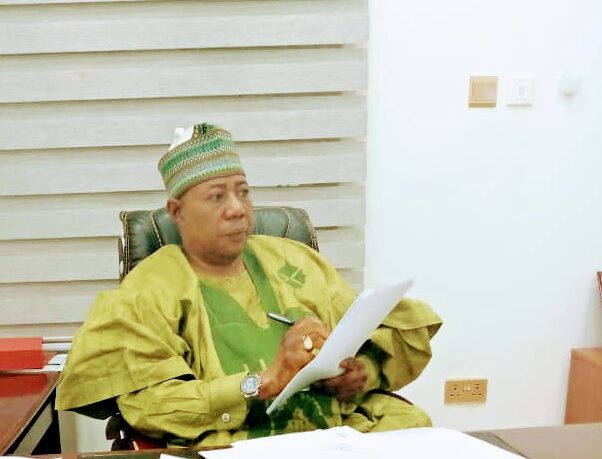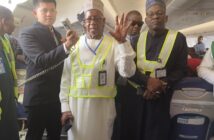President Bola Tinubu’s decision to launch a thorough investigation into the Central Bank of Nigeria (CBN) has sent ripples through the Nigerian landscape. While opinions vary on the specifics, one thing is clear: the spotlight on accountability and transparency in critical government institutions is long overdue.
In this vein, it begs the question: if the CBN is under the microscope, should other crucial revenue-generating agencies, particularly the Nigerian National Petroleum Corporation (NNPCL), be subjected to the same level of scrutiny? The answer is a resounding yes, and here’s why.
In view of the magnitude of fidings by the Obaze-led investigative panel, the call for probe of NNPCL by the former governor of the CBN, Lamido Sanusi Lamido, is a clarion call that must not be ignored. This is crucial because NNPCL, with its control over Nigeria’s vast oil wealth, is arguably the most significant revenue earner for the nation. Yet, it operates in a shroud of opaqueness, raising concerns about mismanagement, inefficiency, and potential corruption.
Reports of subsidy scams, opaque oil deals, and lackluster financial performance plague the corporation. For a resource-rich nation struggling with economic woes, this lack of transparency is simply unacceptable. There are several worrying red flags that necessitate a deep dive into the NNPCL:
Financial opacity: NNPCL’s financial statements are often shrouded in secrecy, making it difficult to assess its true financial health and track how effectively it manages revenue. Independent audits are crucial to shed light on its operations and ensure efficient use of public funds.
Subsidy controversies: The opaque fuel subsidy regime remains a hotbed of controversy. Allegations of abuse, diversion, and inflated figures abound, with billions reportedly disappearing into thin air. A thorough investigation is needed to assess the efficacy of the subsidy program and root out any malfeasance.
Oil deals shrouded in secrecy: Allegations of shady oil deals and contracts awarded without due process plague the NNPCL. Scrutinizing these deals is crucial to ensuring transparency and preventing resource pilfering.
Inefficient operations: NNPCL continues to struggle with operational inefficiencies, including underperforming refineries, high production costs, and overheads. Investigating these bottlenecks can pave the way for optimization and increased revenue generation.
As a nation, we should not make the mistake of thinking that only NNPCL have need for scrutiny. It extends beyond NNPCL to encompass other key revenue-generating agencies:
Federal Inland Revenue Service (FIRS): The FIRS is responsible for collecting non-oil tax revenue. Issues like tax evasion, leakages, and inefficient collection mechanisms warrant investigation to maximize revenue generation.
Nigerian Customs Service (NCS): Customs generates revenue through import duties and trade facilitation. Examining potential smuggling, duty evasion, and corruption within the NCS is crucial to plug revenue leakages.
Nigerian Ports Authority (NPA): The NPA manages Nigeria’s seaports, a vital source of income. Assessing its operational efficiency and potential corruption can unlock its full revenue potential.
The Jim Obaze investigative report alleges that erstwhile CBN governor, Godwin Emefiele, employed surrogates to obtain shares in a new-generation bank during his tenure at the helm of the apex bank. Submitted to President Tinubu on December 20, the report presents 17 grave allegations against Emefiele, shedding light on various financial irregularities.
The accusations against Emefiele encompass a spectrum of financial misdeeds, including unauthorised funding of 593 offshore bank accounts, fraudulent cash withdrawals from the CBN vault, gross financial misconduct involving the former governor and his deputy governors, and substantial fixed deposit holdings, amounting to £543.4 million.
The report also highlights manipulations in the Naira exchange rate, irregularities in the e-Naira project, unauthorised printing of new currency denominations, and substantial expenditures on dubious legal fees. Allegations also include fraudulent interventions, COVID-19-related irregularities, and misrepresentation of presidential approvals on various financial strategies.
Emefiele stands accused of padding former President Muhammadu Buhari’s approval, unauthorised appropriations of substantial sums, and irregular securitization of financing without due authorization.
The release of these allegations against Emefiele has generated significant public interest, prompting calls for further probe into NNPCL’s books and other federal government revenue generating agencies. The revelations from CBN probe is eye-opening and have sparked debates and discussions nationwide, as Nigerians await further developments on this unfolding financial controversy.
The 17 allegations laid against Emefiele include:
Unauthorised funding of 593 bank accounts located in the UK, US, and China; Fraudulent cash withdrawal of $6.23 million from the CBN vault under a purported presidential approval to pay foreign election observer; Gross financial misconduct by Emefiele and at least 13 other individuals, including his Deputy Governors; £543.4 million held in fixed deposits by Mr. Emefiele; Manipulation of the Naira exchange rate and perpetration of fraud in the CBN’s e-Naira project. The unauthorised Naira Redesign without Board or presidential approval; The printing of new N200, N500, N1,000 notes costing N61.5 billion, with N31.8 billion paid to the Contractor; Expenditure of N1.73 billion on questionable legal fees related to the Naira Redesign; Payment of £205,000 to a UK Firm for the Naira Redesign effort; Fraudulent use of Ways & Means totaling N26.627 trillion.
Further report accused Emefiele of Fraudulent intervention programs; Fraudulent expenditures related to COVID-19; Misrepresentation of presidential approval on the NESI Stabilization Strategy Ltd; Padding of former President Buhari’s approval by N198.96 billion; Unapproved N500 billion taken and debited to Ways & Means without former presidential approvals; Emefiele and 4 Deputies’ alleged connivance to misappropriate funds; No approval for the breakdown of N22.72 trillion presented to the 9th National Assembly to illegitimately securitize the “Ways & Means” financing.
The CBN investigation should serve as a blueprint for a broader anti-corruption and transparency drive across all government agencies. Here’s how to ensure a comprehensive approach:
Independent and transparent investigations: Engaging competent, independent investigators, free from political or vested interests, is crucial to ensure unbiased and impartial findings.
Forensic audits: Conducting thorough forensic audits can uncover financial irregularities, asset diversions, and hidden accounts, exposing potential mismanagement and corruption.
Public disclosure of findings: Transparency is key. The public deserves transparent access to investigation reports and actionable recommendations.
Holding perpetrators accountable: Any identified wrongdoing must be met with swift and decisive action, including prosecution and recovery of stolen funds.
Strengthening legal and regulatory frameworks: Addressing vulnerabilities in existing laws and regulations is crucial to prevent future mismanagement and corruption.
Needless to remind Nigerians that scrutinizing revenue-generating agencies like NNPCL and others promises substantial benefits for Nigeria:
Increased revenue generation: Plugging leakages, optimizing operations, and tackling corruption can unlock significant additional revenue for the nation.
Improved economic performance: Efficiently managing resources can translate into a stronger economy, job creation, and improved social welfare.
Enhanced investor confidence: Transparency and accountability attract investment, fostering economic growth and development.
Strengthened public trust: By tackling corruption and promoting transparency, the government can rebuild public trust and legitimacy.
As I conclude, let me point out here that President Tinubu’s New Year broadcast aptly captured his renewed hope perfectly designed to alleviate the suffering of the great mass of Nigerians. This is the first time that a Nigerian leader would identify and acknowledge the hardship time his followers are facing, and sympathise with them. This shows that the president is serious about changing the dwindling fortunes of the country.
This is why his decision to probe the CBN is a commendable step towards a more accountable and transparent governance. However, the task cannot end there. Extrapolating this approach to other key revenue-generating agencies, particularly NNPCL, is not just desirable, but a moral imperative. Taking a closer look into these opaque institutions can unlock immense economic potential for Nigeria, pave the way for a more sustainable future, and rebuild public trust in the government.
There has been regional political propaganda regarding the investigation carried out by the Obaze-led panel. But it is the enemies of the nation’s progress that are at work and their distractions should be discarded while they should be monitored closely in order not to cause damage to the renewed hope agenda. The time for shadows and whispers is over; it’s time to lift the veil. Happy New Year to all.



